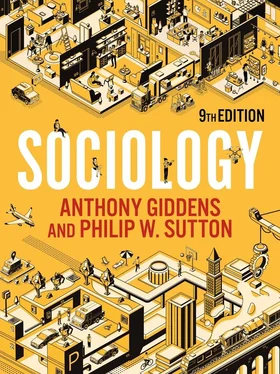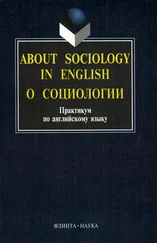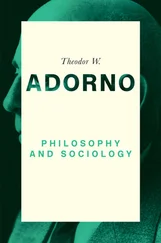Many postcolonial accounts seek to enable previously marginalized people and viewpoints – the subalterns – to participate on equal terms to reshape disciplines such as sociology. The problem was starkly illustrated in an early, classic postcolonial work, Edward Said’s (1978) Orientalism , which criticized Western academic studies of ‘the Orient’ or ‘the East’. Said took issue with Orientalists, scholars in the so-called Area Studies tradition of the late nineteenth and early twentieth century, who analysed the Middle East, Africa and Asia. Their discussions of the Orient relied on a sharp contrast with the Occident (‘the West’), where the Orient was seen as the exotic ‘Other’ to the ‘normal’ and superior Occident. To put this another way, academics in the West produced what were perceived to be authoritative accounts of the East, but without any input from indigenous people or scholars.
Said argued that Oriental Studies operated with the assumption that Eastern societies, as a group, shared some essential similarities which enabled them to be discussed collectively, while at the same time they were very different from Western cultures. This contrast was then used to ‘explain’ the failure of the Orient to modernize. Following Foucault’s ideas on the power of discourses in society, Said saw academic Orientalism as one aspect of a societywide discourse of Western superiority, which supported the political and economic colonial regimes on the ground. Far from being an objective, politically neutral and scholarly activity, Orientalism was one way in which the West exerted its authority over the countries of the East.
You may think that contemporary sociology has moved far beyond the early Eurocentrism, as globalization has forced sociologists to take a much broader view and to study developing countries as well as the industrialized ones. However, postcolonial theorists argue that even contemporary theories remain stuck in older ways of thinking. For example, many globalization theories see the process involving capitalism and industrialism spreading outwards from the West into ‘the rest’ of the world, taking with it fundamental features of Western culture. Seen this way, sociological theorizing is then able to continue with ‘business as usual’, without revising its core concepts and theories. You will have to reach your own conclusions as to how far this conclusion is accurate.
Recent feminist and postcolonial critiques demand a rethinking of the very foundations of sociology. However, not everyone agrees that this is either possible or necessary. First, the fact that this textbook and others cover gender relations, feminist theories, disability, sexualities and ethnicity alongside global inequalities, nations and nationalism, war, and much more, shows that sociology has not been immune to social trends, developing theories and changing attitudes. Indeed, sociology is a discipline that has to change and ‘move with the times’ if it is to be relevant in the rapidly changing social world. The question is whether it moves far enough and fast enough.
Second, internal debates within feminist theory and postcolonialism mean that their critiques of sociology have also changed over time. As McLennan (2010: 119) argues, ‘it is important to be realistic, and to resist any overbearing moralism; all thought systems are inevitably ethnocentric in focus, style and available expertise. Moreover, what it even means to “decolonize” or to “postcolonialize” sociology is far from crystal clear.’ Similarly, postcolonial theory entails a critique or rejection of the central sociological concept of ‘modernity’, which aims to characterize the experience of most Western societies but also presents the associated process of modernization as spreading outwards to ‘the rest’ of the world. The perceived Eurocentrism of this position has led many sociologists to abandon the concept altogether. Yet, as Fourie (2012: 53) argues, ‘switch on a television, open a newspaper or stroll through any city and one is likely to encounter the term or its variants; clearly “modernity is in the streets more than ever” (Kaya 2004: 47), and so continues to shape our understanding of the world around us.’
The ongoing debate around modernity, modernization and alternatives such as postcolonialism shows that even sociology’s foundational concepts can still be questioned and opened up again for investigation. Yet, some key issues about how sociology can and should be practised seem to endure amid all of the critiques and change, and we look at just two of these next.
Anthropologists conventionally study societies outside of the industrialized world. Should sociologists then simply accept that, given its origins, sociology is best suited to the study of modern societies? Does globalization effectively eliminate this academic division of labour?
Enduring theoretical dilemmas
From its inception, sociology has faced some theoretical dilemmas – matters of recurring controversy and dispute. These concern general approaches that pose questions about how we can or should ‘do’ sociology, and two have proved remarkably persistent: the problem of structure and agency and the issue of consensus versus conflict.
The first dilemma concerns the relative weight we should afford to social structure and human agency. How far are individuals creative actors capable of controlling the conditions of their lives? Is most of what we do the product of social forces outside individual control? This is considered a ‘problem’ because sociologists are divided on where the focus should be. Actionoriented approaches stress the active, creative side of human behaviour, while functionalism and some variants of Marxism emphasize the constraining nature of social structures.
The second dilemma concerns consensus and conflict. Some theories see the inherent order and harmony of human societies as their most enduring aspect. On this view, continuity and consensus are the most striking characteristics of societies, however much those societies change over time. Others see the pervasiveness of conflict as part of the basic fabric of social life rather than as an unusual or transitory aspect. Societies, they argue, are riven with social divisions, tensions and struggles, and it is wishful thinking to believe that people live amicably most of the time. We will take these two dilemmas in turn.
Social structure and human agency
Durkheim argued that society has primacy over the individual person as it is more than the sum of individual acts; it has a ‘firmness’ or ‘solidity’ comparable to structures in the material environment. Think of a person in a room with several doors. The structure of the room constrains the range of possible activities. The siting of the walls and the doors defines the routes of exit and entry. Social structure sets similar limits to what we can do, and in this sense it is ‘external’ to the individual. Durkheim (1982 [1895]: 50) expresses the point this way:
When I perform my duties as a brother, a husband or a citizen and carry out the commitments I have entered into, I fulfil obligations which are defined in law and custom and which are external to myself and my actions…. Similarly, the believer has discovered from birth, ready fashioned, the beliefs and practices of his religious life; if they existed before he did, it follows that they exist outside him. The systems of signs that I employ to express my thoughts, the monetary system I use to pay my debts, the credit instruments I utilize in my commercial relationships, the practices I follow in my profession, etc. – all function independently of the use I make of them.
Читать дальше












